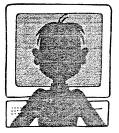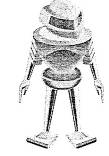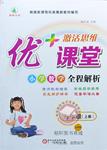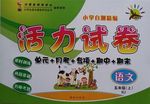




 激活思维优加课堂系列答案
激活思维优加课堂系列答案 活力试卷系列答案
活力试卷系列答案科目:初中英语 来源:不详 题型:阅读理解
查看答案和解析>>
科目:初中英语 来源:不详 题型:完形填空
查看答案和解析>>
科目:初中英语 来源:不详 题型:阅读理解
| 小题5: |
|
查看答案和解析>>
科目:初中英语 来源:不详 题型:阅读理解
| A.What to eat | B.What to wear | C.What to learn | D.What to obey |
| A.Boarding schools in the UK |
| B.How to study in the UK |
| C.Students work hard in the UK |
| D.The history of boarding schools in the UK |
查看答案和解析>>
科目:初中英语 来源:不详 题型:阅读理解
| Rights (权利) of students | Responsibilities (职责) of students |
| 小题1:_____________ | We have the responsibility to treat other school members with understanding 小题2:__________ |
| We have. the right to express ouropinions. | We have the responsibility to express our opinions at the right time and place. |
| We have the right to be safe. | We have the responsibility to make our school safe by not hitting or hurting anyone in any way and not bringing to school anything which could cause harm, for example, knives. |
| 小题3:________ | We have the responsibility not to smoke or drink in the school. |
| We have the right to expect our property (财产) to be safe. | We have the responsibility not to steal or destroy the property of others, 小题4:_________ |
| We have the right to have a clean and pleasant school. | We have the responsibility to care for our school Environment 小题5: _____________ |
| We have the right to be helped to learn self-control. | We have the responsibility to learn self-control. |
| A. We have the right to keep healthy. |
| B. and to take good care of our property. |
| C. not to laugh at others or try to hurt their feelings. |
| D. to keep it neat and clean. |
查看答案和解析>>
科目:初中英语 来源:不详 题型:阅读理解
查看答案和解析>>
科目:初中英语 来源:不详 题型:阅读理解
查看答案和解析>>
科目:初中英语 来源:不详 题型:阅读理解
| Name | How’s it going? | What’s he doing? | How’s the weather? |
| Tom | 1.______________ | 2.______________________ | 3.____________________ |
| Li Lei | 4.______________ | helping his mom clean the room | 5.____________________ |
查看答案和解析>>
湖北省互联网违法和不良信息举报平台 | 网上有害信息举报专区 | 电信诈骗举报专区 | 涉历史虚无主义有害信息举报专区 | 涉企侵权举报专区
违法和不良信息举报电话:027-86699610 举报邮箱:58377363@163.com